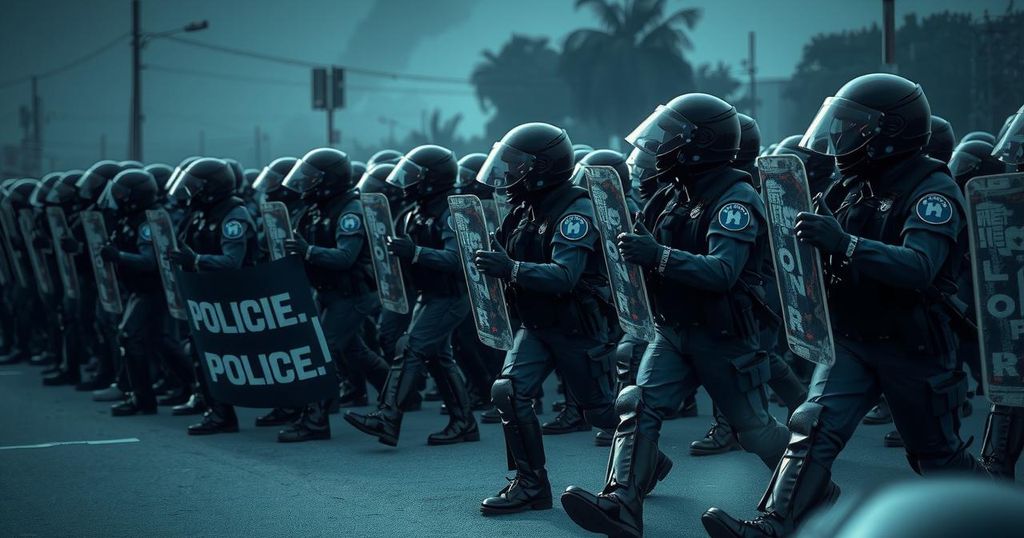Police in Mozambique shot at a demonstration led by opposition leader Venâncio Mondlane, resulting in the deaths of two children and injuries to 16 people. This incident occurred during a larger atmosphere of heightened political tension and efforts toward a national dialogue, despite the backdrop of past violence and contested election results. Mondlane’s safety remains a concern after the altercation.
On Wednesday, police in Mozambique opened fire on a demonstration organized by opposition leader Venâncio Mondlane in the capital, Maputo. According to Mondlane’s team, this violent action led to the deaths of two children and students, along with injuries to 16 individuals, including members of the opposition team. The police reportedly utilized teargas which affected many citizens present at the scene.
The demonstration drew a large crowd, as highlighted by a live video posted by Mondlane, where he addressed hundreds of supporters. However, the broadcast was cut short due to the sudden eruption of gunfire from security forces, with additional videos from witnesses documenting the chaos that ensued.
Mondlane’s team described the police as “disproportionately armed,” asserting that they were employing armored vehicles. Following the shooting, there were concerns regarding the safety and location of Mondlane himself. This incident echoes broader tensions in the country, occurring simultaneous to an agreement signed by Daniel Chapo for an “inclusive national dialogue” among opposition parties, including the Optimist Party for the Development of Mozambique (Podemos).
Chapo emphasized the historic significance of the commitments made by nine political formations towards promoting a more participatory and accountable state. This dialogue represents an attempt to address prevailing political instability and foster national reconciliation. Notably, Mondlane previously led significant protests in response to previous election results, which claimed 353 lives due to police violence.
The recent elections resulted in a victory for Chapo and the ruling FRELIMO party, maintaining their long-standing control since independence in 1975. Despite the official results, Mondlane has contested the outcome, claiming to represent the elected will of the Mozambican populace.
The violent confrontation between police and opposition supporters highlights the ongoing tensions in Mozambique’s political landscape. With casualties among young attendees and concerns for Mondlane’s safety, this event reflects the repercussions of political dissent. The backdrop of a newly established dialogue aims to address these issues, yet prior history of violence raises questions about the sustainability of peace and stability. As factions navigate their political futures, the Mozambican populace continues to endure the implications of government repression and contestation.
Original Source: efe.com




